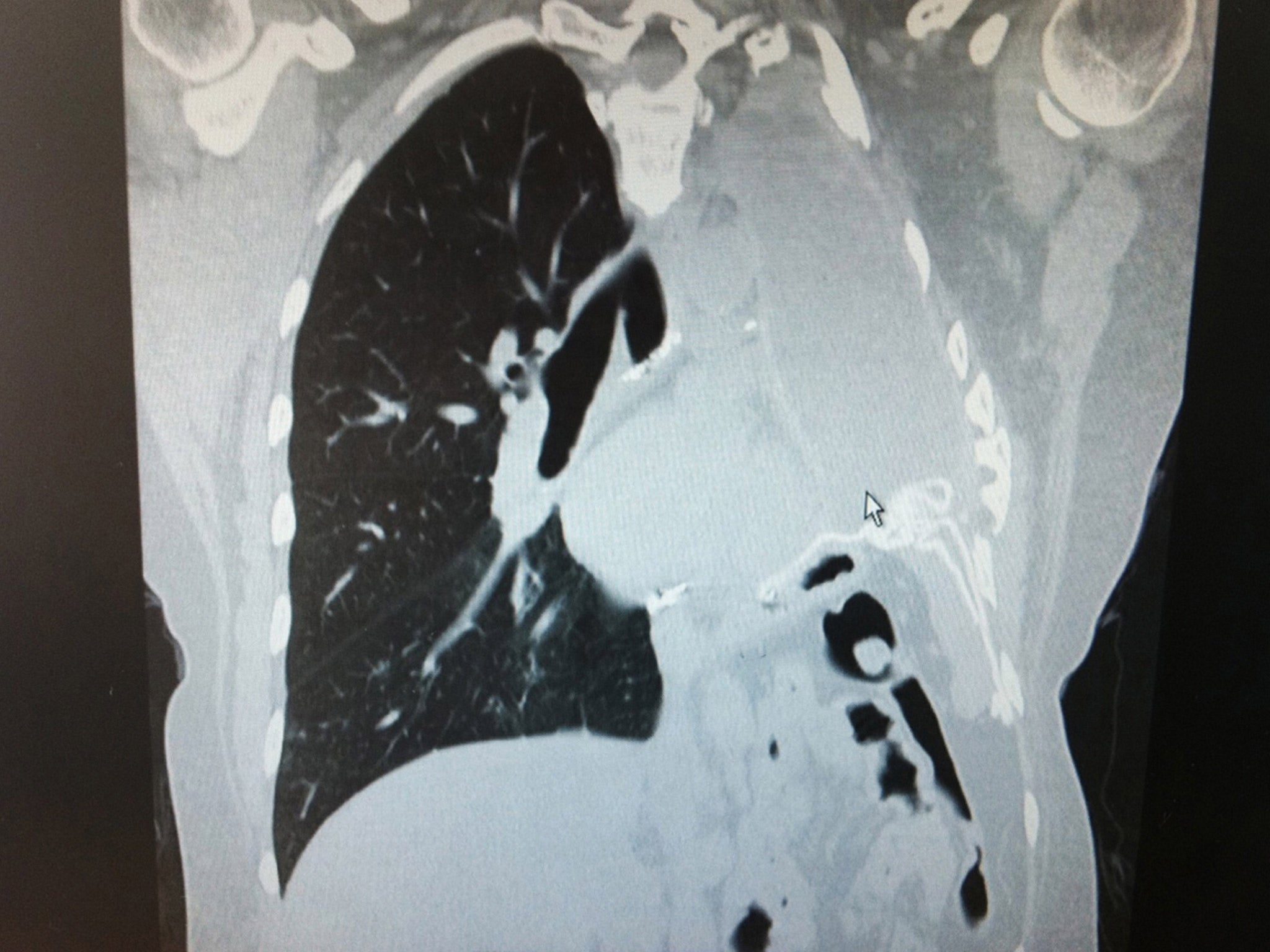Exclusive: Urgent call for research into mesothelioma after rise in number of deaths
The British Lung Foundation says figures will continue to rise until around 2020

The number of cancer deaths caused by asbestos exposure in the UK continues to rise, leading to a renewed call by scientists for the insurance industry to urgently pump more money into research.
Fresh figures from the Health and Safety Executive released today show an increase in cases of mesothelioma of more than 10 per cent, due largely to a greater number of male deaths aged 65 and over.
According to the British Lung Foundation, the figures will continue to rise until around 2020 even though, around a year ago, it had been thought the peak would be reached in 2016.
Symptoms of mesothelioma develop, on average, around 32 years after exposure to asbestos fibres with sufferers, once diagnosed, living an average of eight months.
Doctors say this is why, despite bans on the import of blue and brown asbestos in the UK in 1985 and white asbestos in 1999, the number of deaths continue to rise. There were 2,535 mesothelioma deaths in 2012, up from 2,291 in 2011, and, of those, 2,126 were men and 409 were women.
Men who have worked in the building industry are now thought to be among those most at risk of developing the cancer, which affects the pleural lining around the lungs.
But Dr John Moore-Gillon of the British Lung Foundation said the fact mesothelioma primarily affects working men is partly to blame for a distinct lack of research into the cancer.
“Mesothelioma is a ghastly disease but because there are no high profile sufferers unlike HIV/Aids, breast cancer and heart disease, there is a lack of publicity, awareness and, as a consequence, little money going into research,” he said.
Dr Moore-Gillon is calling on the insurance industry to fund greater levels of research, believing it to be in their best interests. Insurance companies foot the compensation payouts awarded to sufferers and their families who take legal action against the companies which exposed workers to asbestos.
“For the insurance companies, I think their funding of mesothelioma research would be well-informed self-interest because they have colossal pots that run into hundreds of millions of pounds, set aside for mesothelioma cases for the next 30 or 40 years,” he said. “If they donate money to research and work towards alleviating suffering, they could potentially save a lot of money.”
Mesothelioma research is understood to be chronically underfunded. Lord Alton of Liverpool, who will speak in Manchester for Action Mesothelioma Day on Friday, called for greater research funding in a motion set down on 5 June, 2013.
The Mesothelioma Bill was passed in March this year to allow mesothelioma suffers and their family to apply for payouts from a pot totalling £380 million funded by the insurance industry, but none of that money will go directly to research.
“There is no consistency of funding for mesothelioma,” said Dr Moore-Gillon. “It's not an attractive area for researchers either. If you're a bright person with a PhD making a career in cancer research and you are told you can work on a mesothelioma project for a year, you're looking for a new job in 12 months.
"Instead, you can hook into breast cancer research and be employed for 20 years. Mesothelioma research currently has no long-term funding or stability.”
He added that the current government funding model for research means the Medical Research Council will only allocate money to existing projects. If the insurance companies put money into research, he said, government money is far more likely to follow.
“There is no sign of mesothelioma levelling off,” he said. “There is a small risk to every one of us - I have hundreds of thousands, perhaps millions, of tiny asbestos fibres in my lung because every time I go into a city I am exposed – but there are thousands of others occupationally exposed and at the highest risk. Research is essential.”
Subscribe to Independent Premium to bookmark this article
Want to bookmark your favourite articles and stories to read or reference later? Start your Independent Premium subscription today.

Join our commenting forum
Join thought-provoking conversations, follow other Independent readers and see their replies